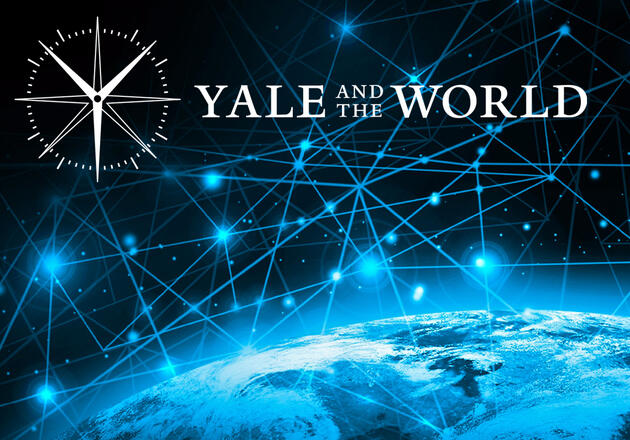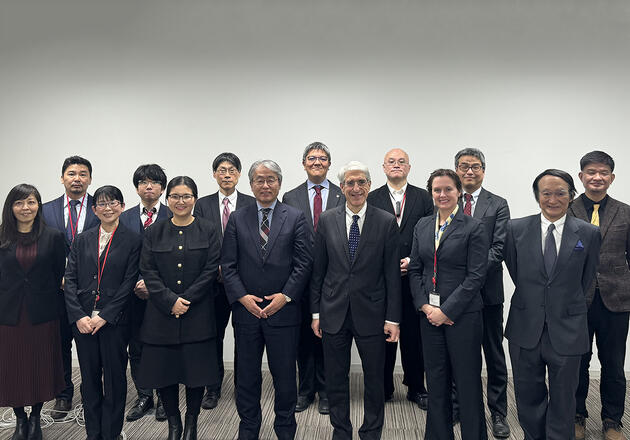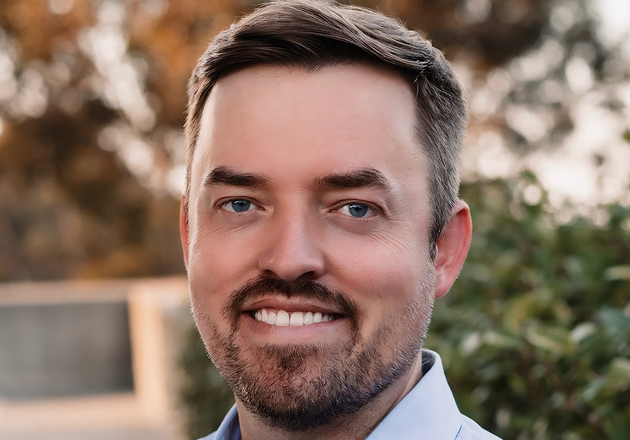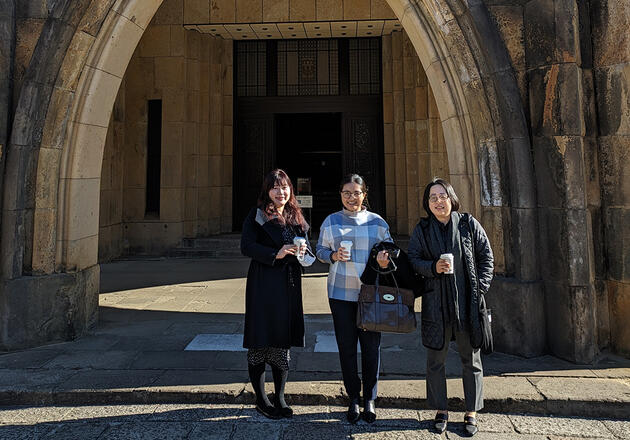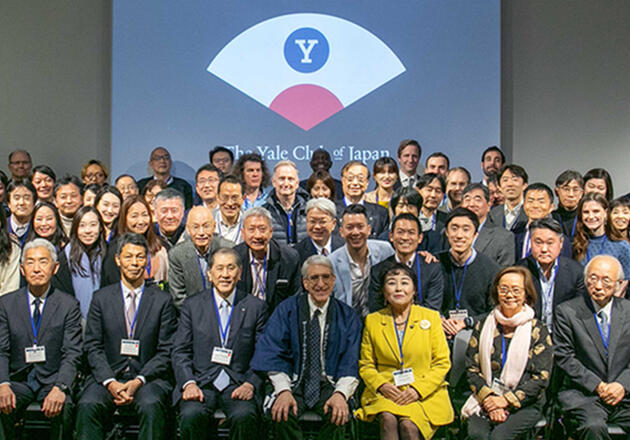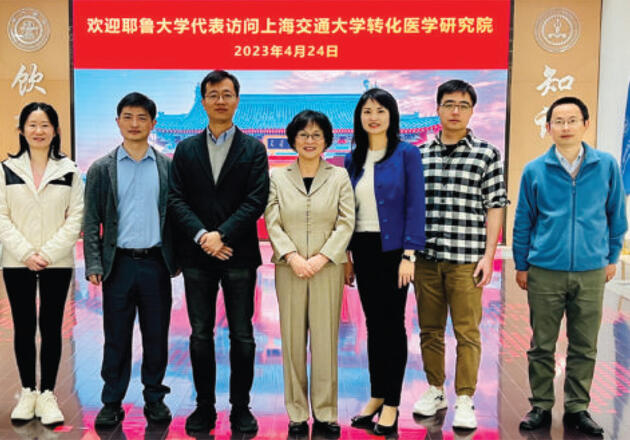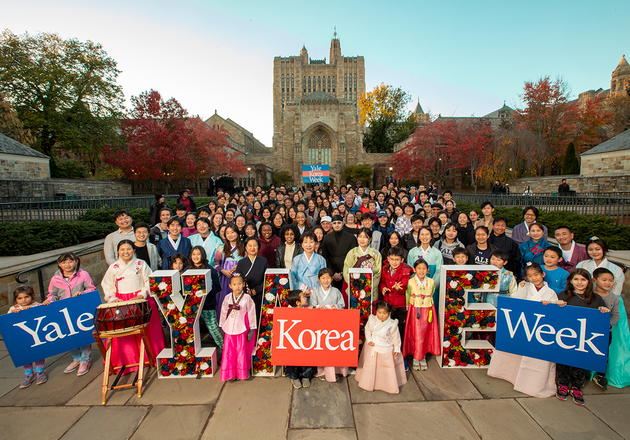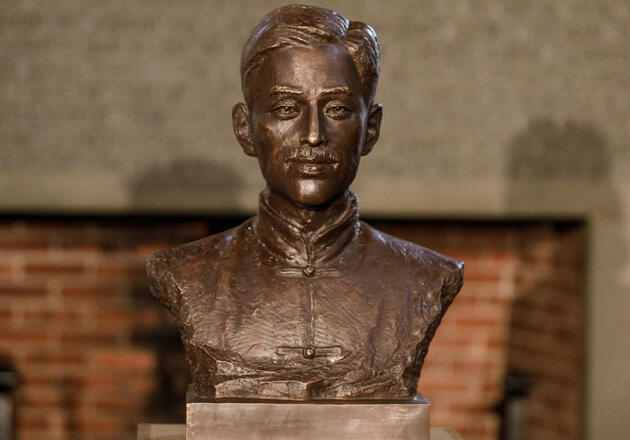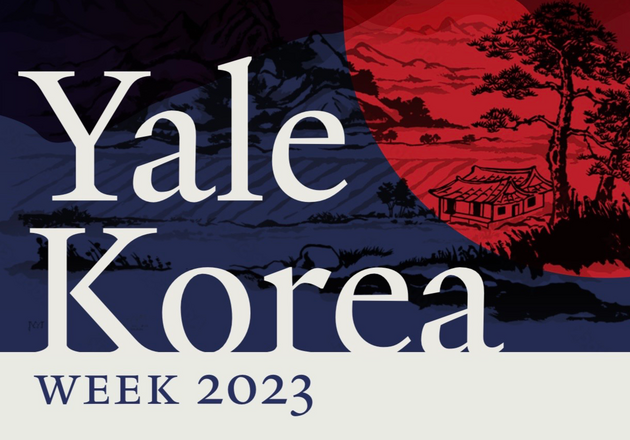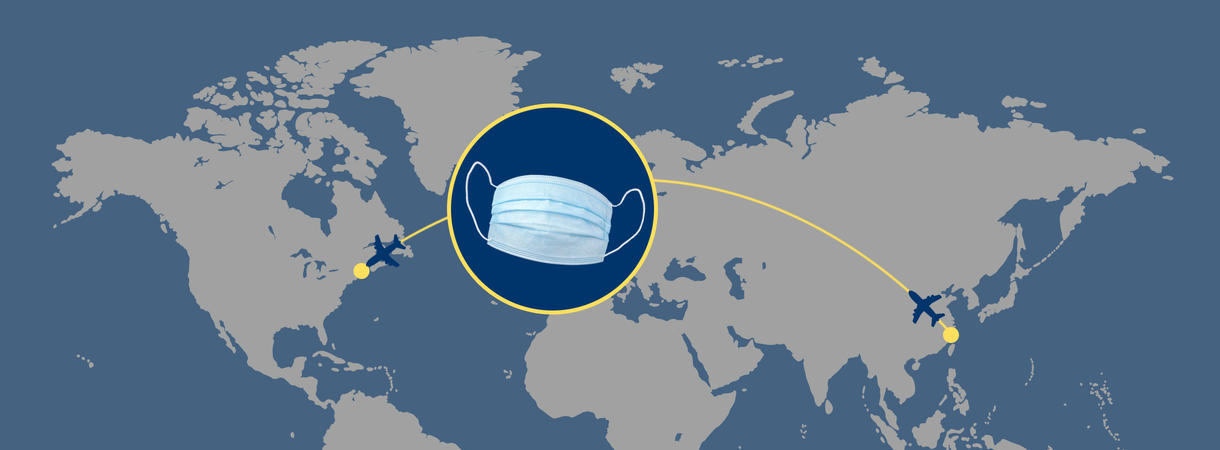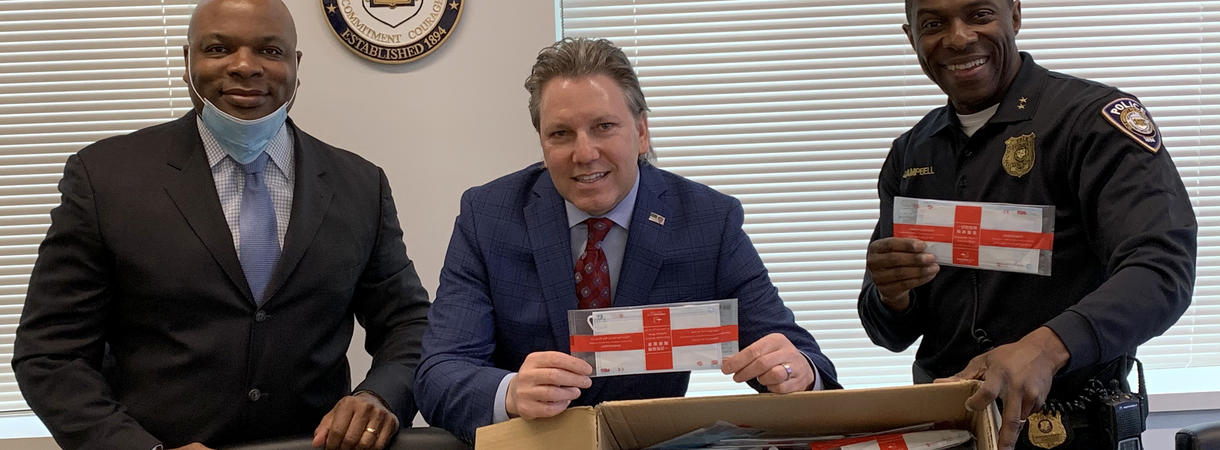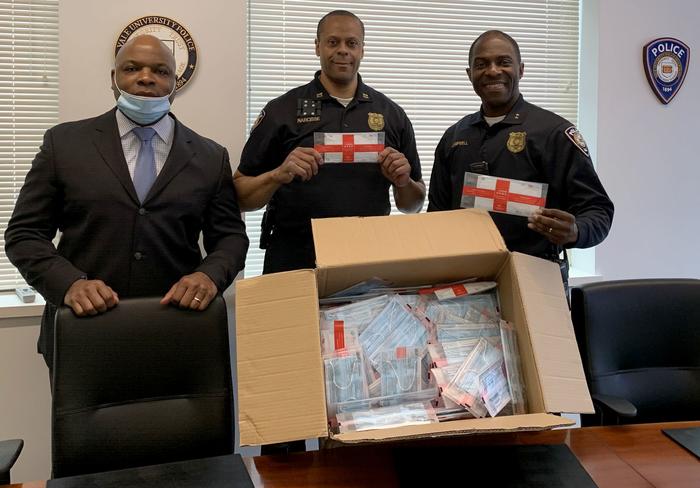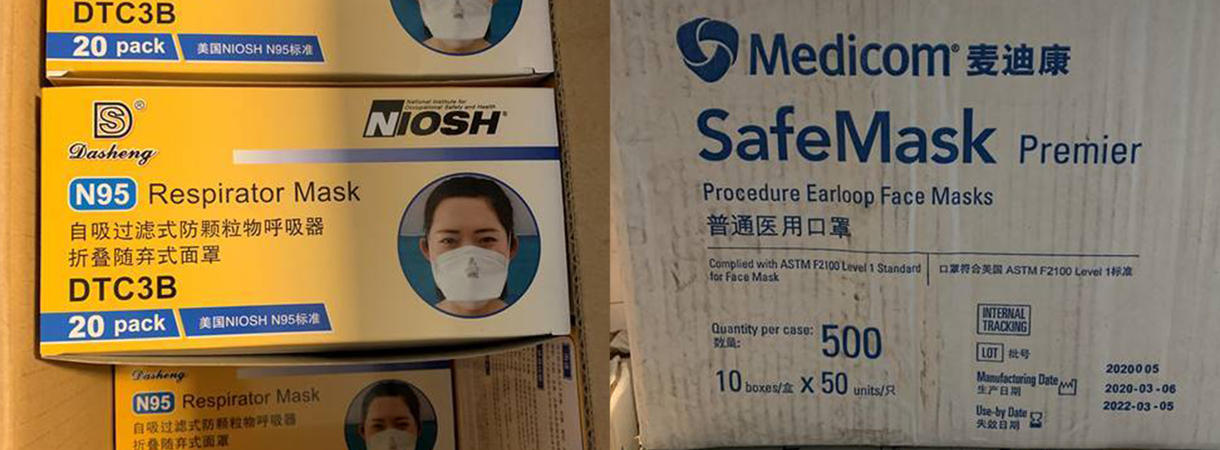A recent program designed by Yale’s Office of International Affairs (OIA) brought together representatives of Japanese universities, government, and corporate entities with Yale experts for a month-long series of online meetings to discuss the building blocks of innovation ecosystems at Yale and other US universities that promote entrepreneurship. Meeting topics drew connections to a Japanese government initiative to reform the practices, policies, and laws around scientific and technical innovation and commercial development at Japanese universities.
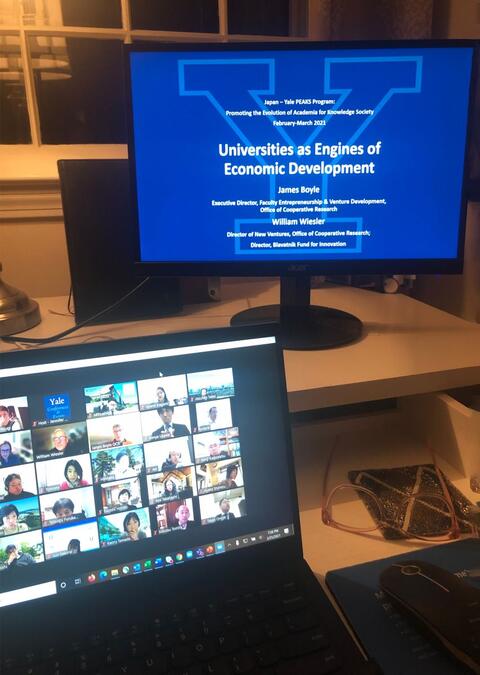
The idea for the program developed over several years, in collaboration with Dr. Takahiro Ueyama, who is a member of the Council for Science, Technology, and Innovation in the government of Japan. The program was one of a suite of leadership programs run by OIA to build and enhance strategic relationships around the world.
The program rolled out over the course of four weeks from early February into early March 2021. Most of the presentations were pre-recorded so the participants in Japan could watch them on their own time and at their own pace. Live meetings were reserved for interactive discussions and opportunities for question-and-answer sessions.
Since the 1980s U. S. universities have been leaders in tech innovation and bringing technologies to market. Many factors set the stage for this success, from the legal framework that was put in place in the 1980s and 90s around intellectual property and patents and licensing, to the structure of relationships between industry and universities, to the vibrancy of the venture capital sector. The richness of curricular and co-curricular offerings in entrepreneurship and innovation at many U.S. universities, and the active mentoring of faculty and students who have innovative ideas, were factors as well.
Yale’s strength in life sciences innovation is of particular note, as Yale faculty and students have created business ventures based on their discoveries. Featured in the conversations were Jon Soderstrom and other members of his team in the Office of Cooperative Research, in addition to others from across the university who have expertise in related areas.
A presentation by Kyle Jensen, Associate Dean and Director of Entrepreneurship at the School of Management and Clare Leinweber, Executive Director of the Tsai Center for Innovative Thinking, focused on the topic of Innovation Education and Training at U.S. Research Universities. They discussed Yale’s commitment to creating and expanding a culture of interdisciplinary entrepreneurship across the university, including offering an academic entrepreneurship curriculum, support for student-founded ventures, and maintaining a rich network of mentors and collaborators for students and faculty engaged in innovative work.
In addition, Stephen Murphy, Vice President for Finance and Chief Financial Officer; Pericles Lewis, Vice President for Global Strategy and Vice Provost for Academic Initiatives; and President Peter Salovey also participated in the presentations and discussions.
During the final session of the series faculty members Rajit Manohar, Professor of Electrical Engineering and Computer Science, and Craig Crews, Professor of Molecular, Cellular and Developmental Biology, were part of panel discussion. They talked about the companies they have built and their experiences transferring technology from the academic setting into commercially viable products and services that create profit, drive economic development, and benefit society. They described their failures as well as their successes, to illustrate the nature of entrepreneurship and the pursuit of innovation.
Previous leadership programs of this type have hosted groups in-person on Yale’s campus and included time for participants to informally connect with Yale staff and faculty members to build the basis for ongoing relationships. However, as a result of pandemic-related travel restrictions, it was discovered that the advantage of conducting this program online, with elements both synchronous and asynchronous, allowed for more participants in the program than would have occurred in person.



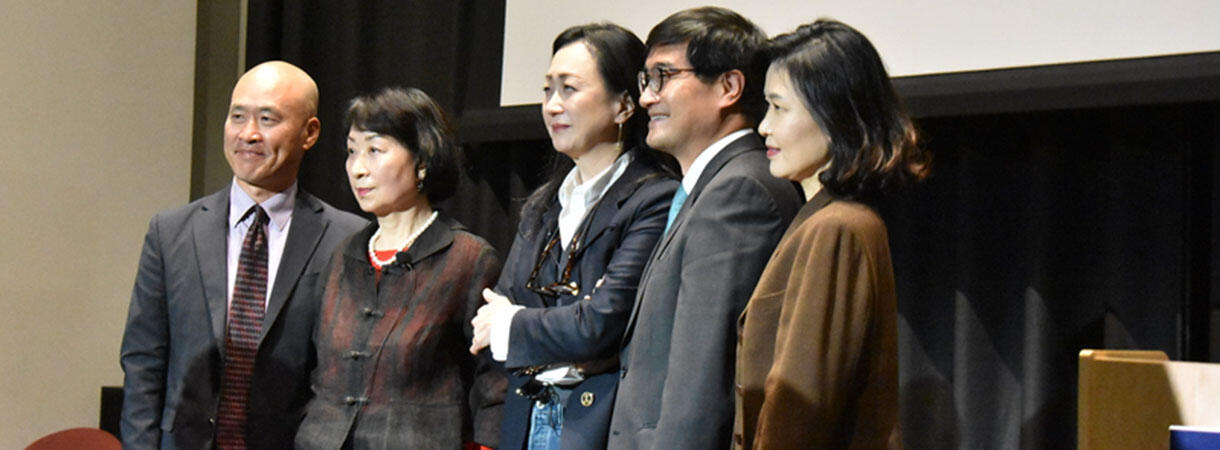
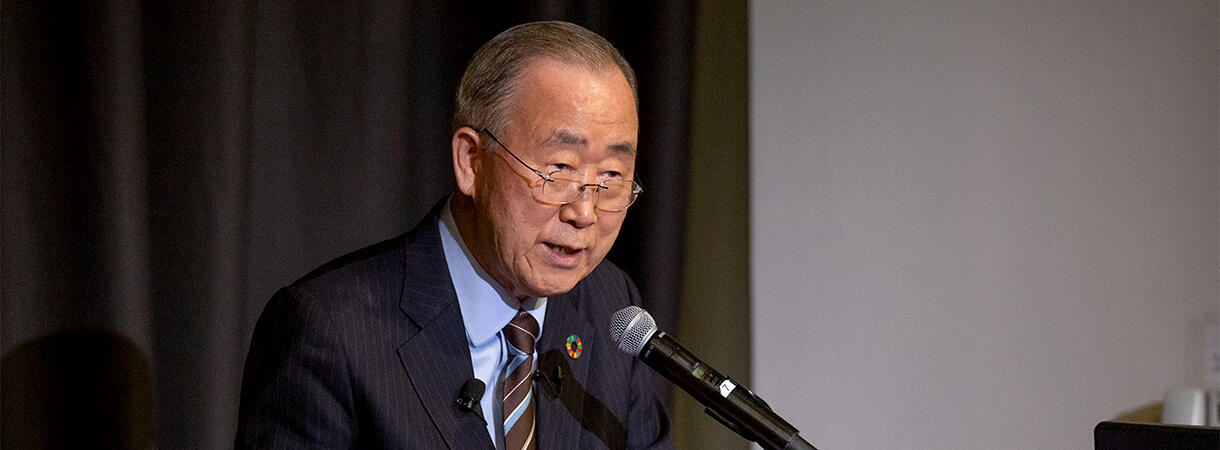
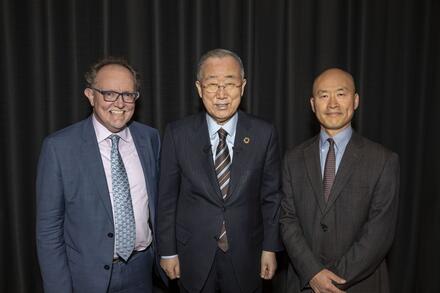 Former United Nations Secretary-General Ban Ki-moon visited Yale on May 3rd to deliver the Coca-Cola World Fund Lecture at the Whitney and Betty MacMillan Center for International and Area Studies. The event was co-hosted by MacMillan Center Director Steven Wilkinson and the Center’s Council on East Asian Studies (CEAS) Chair Hwansoo Kim (All three are pictured at right.)
Former United Nations Secretary-General Ban Ki-moon visited Yale on May 3rd to deliver the Coca-Cola World Fund Lecture at the Whitney and Betty MacMillan Center for International and Area Studies. The event was co-hosted by MacMillan Center Director Steven Wilkinson and the Center’s Council on East Asian Studies (CEAS) Chair Hwansoo Kim (All three are pictured at right.)
